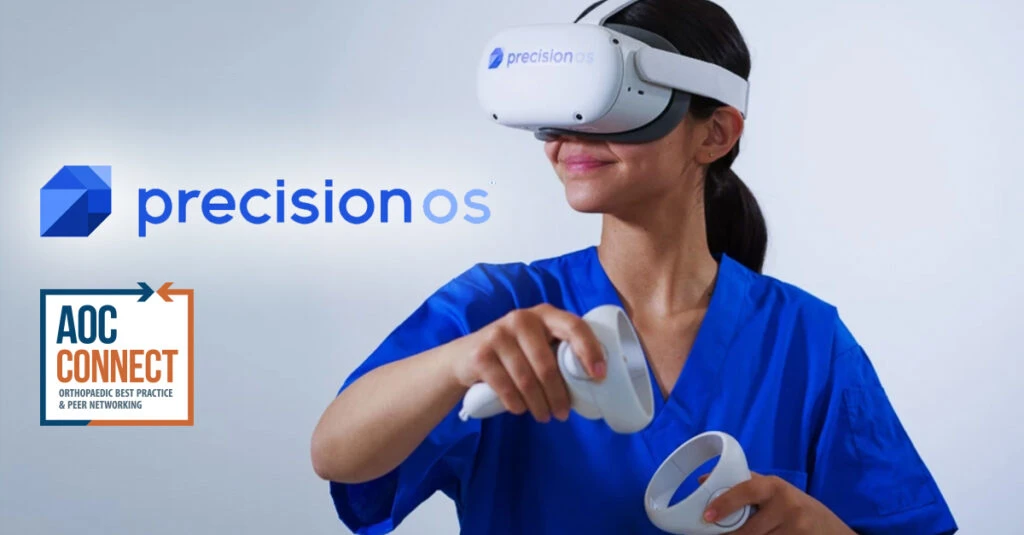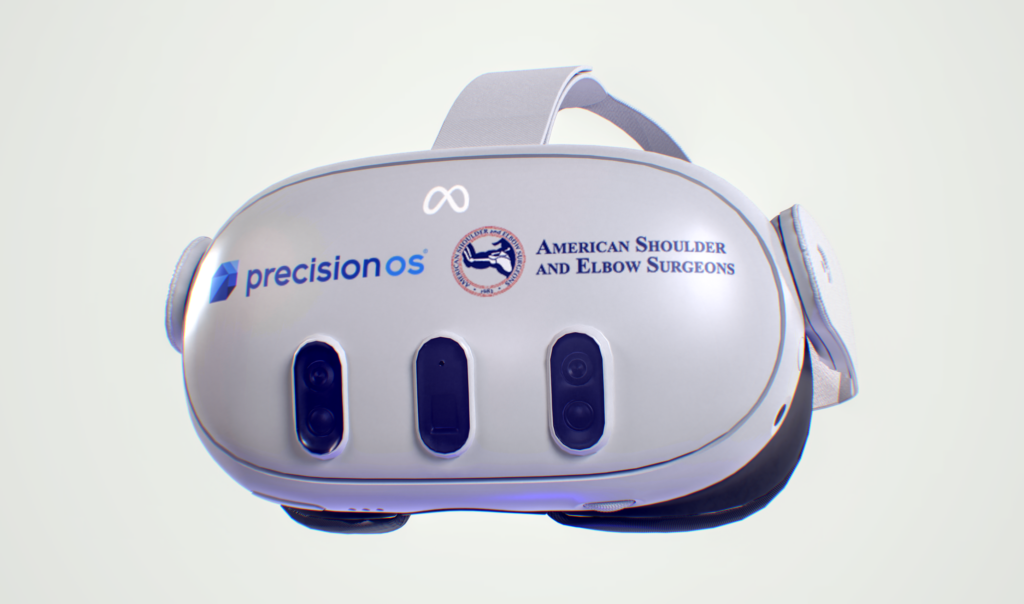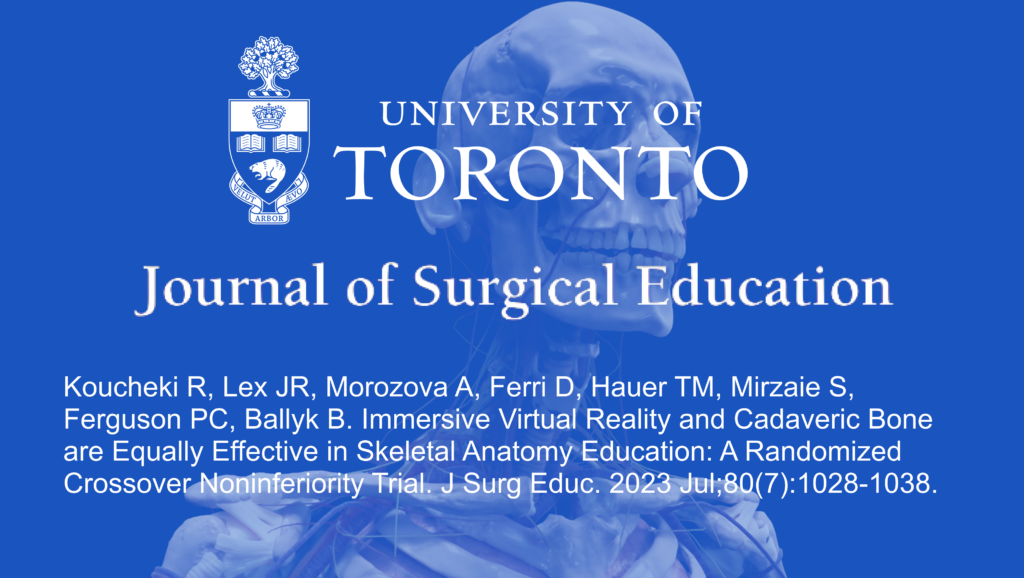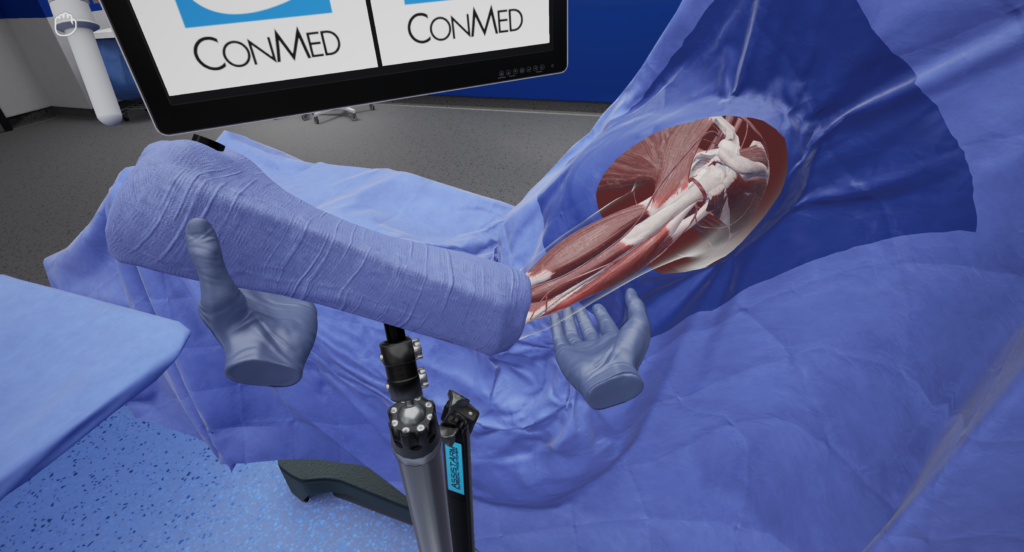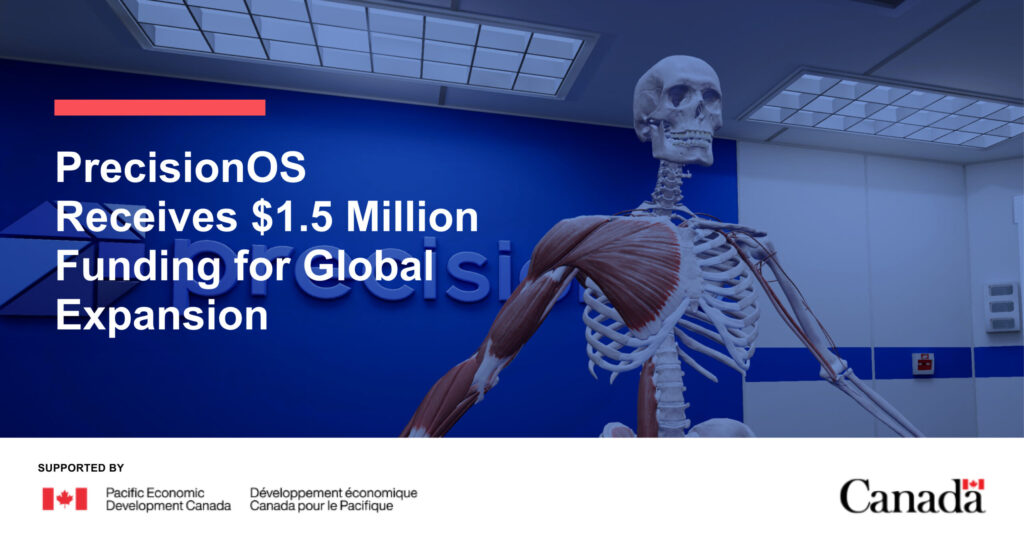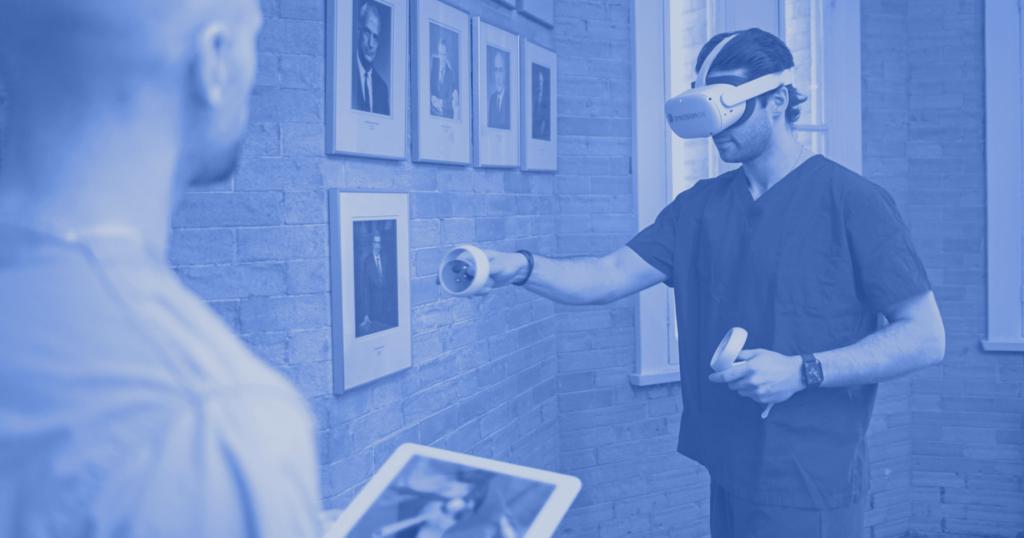The Academic Orthopedic Consortium (AOC) and PrecisionOS proudly announce the establishment of a Corporate Partnership, marking a significant milestone in advancing surgical education and training.
Tag Archives: VR training
In a pioneering leap forward for medical education, a unique randomized trial conducted by a team of esteemed researchers from the University of Toronto has revealed that PrecisionOS technology is as effective as traditional cadavers in teaching anatomy. The study, led by Robert Koucheki, MD, Peter Ferguson, MD and Barbara Ballyk, PhD, has gained significant attention in the last few months since publication.
CUH Consultant Orthopaedic Surgeon Vikas Khanduja, an Affiliated Associate Professor of Orthopedics at University of Cambridge, said the software will augment orthopedic training. He added: “As a Trust we embrace all new technologies and, as a new client, are looking forward to using the software, evaluating it with our trainee surgeons, and providing feedback to the company.”
It’s 3am, been awake for 21 hours, the ER needs the ICU resident (me) for a polytrauma and resuscitation. Heart racing, running up the stairs, almost dropping my palm pilot recalling my ATLS protocol and where and how to put in a chest tube.
New PrecisionOS shoulder simulation module, sponsored by CONMED, offers advanced training for arthroscopic double-row rotator cuff repair.
PrecisionOS interviewed Dr. Ruth Delaney, an orthopedic surgeon in Dublin about her career, thoughts on VR surgical training, advice for aspiring surgeons, and more. We invite you to read the full interview.
PrecisionOS is receiving $1,500,000 for global expansion. This funding will help the company grow its virtual reality medical training platform for adoption in global markets, by expanding operational capacity and implementing new tools to manage customer relationships and software subscriptions.
PrecisionOS®, a leading medical education simulation provider announced today a novel virtual reality curriculum for orthopedic training. The company has put together an extensive guide aimed at all residency programs in North America and beyond.
PrecisionOS Technology is excited to be a part of the HARMONY team, led by CGI, one of the largest IT firms in the world, in a project commissioned by the Canadian Space Agency (CSA). The team has been awarded contracts to build prototypes of the Connected Care Medical Module (C²M²), a container-based concept for mobile medical clinics that can be rapidly deployed in remote, northern, or indigenous communities across Canada, as well as in regions affected by natural disasters and future lunar and deep space missions.


